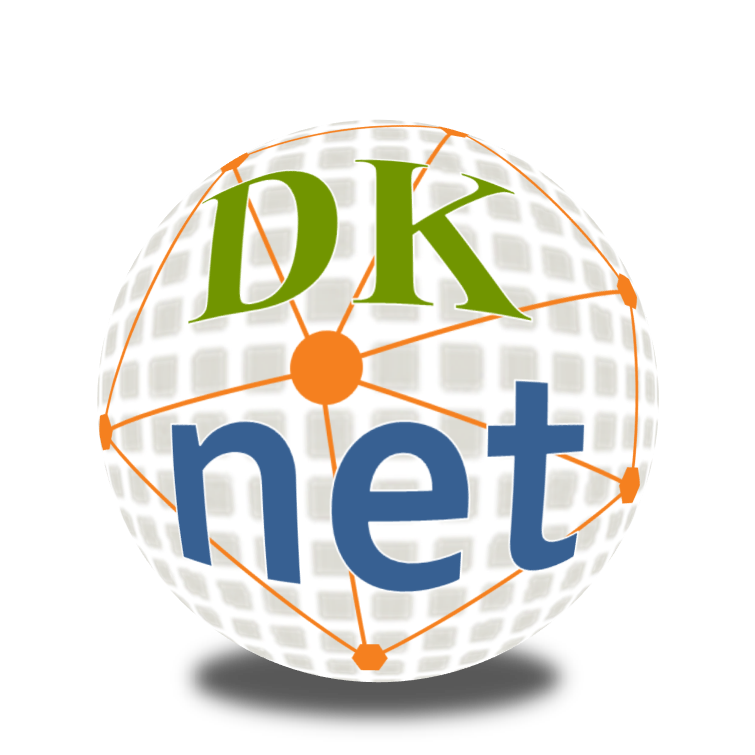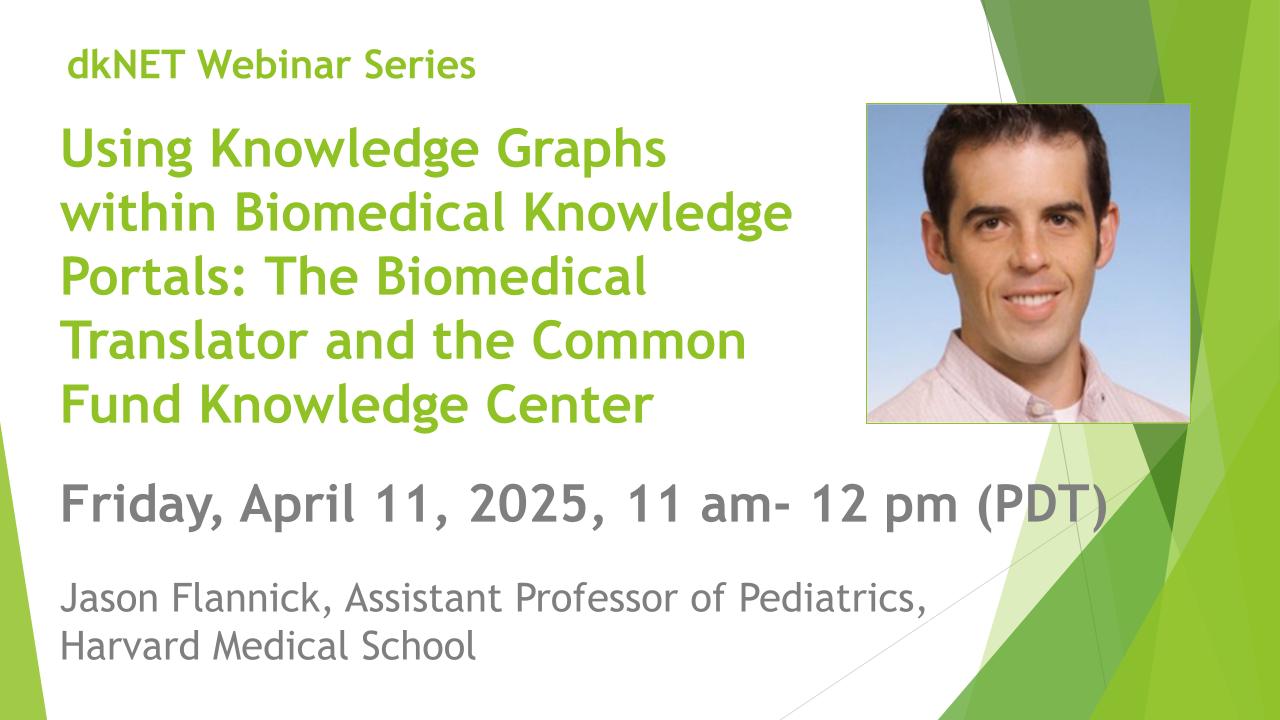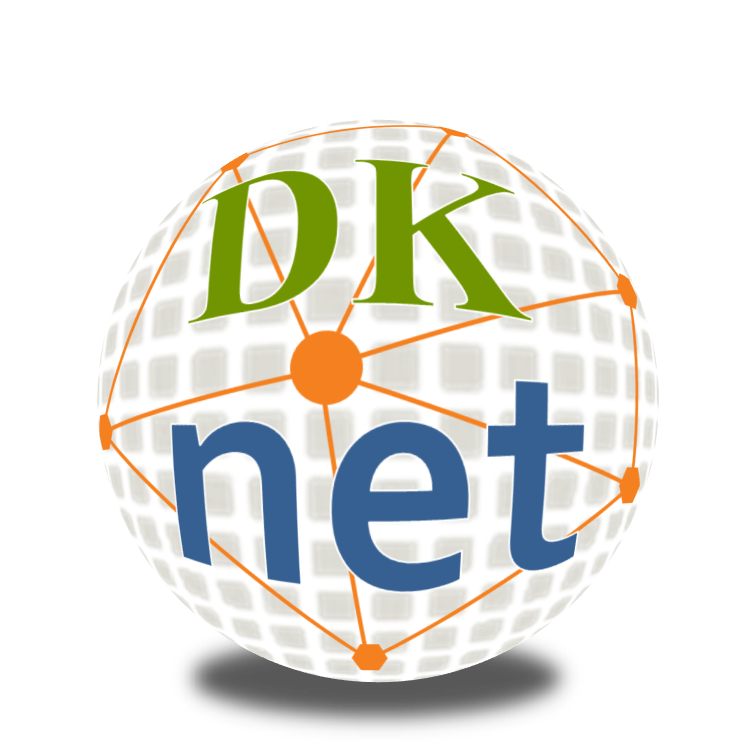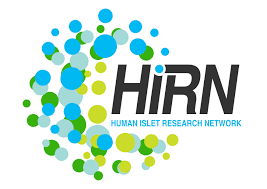dkNET community events and announcements in January, 2022
- 05:56pm December 23, 2021
- Ko-Wei Lin
Dear dkNET Community,
dkNET provides updates on activities of interest to the NIDDK-supported community. You could keep up to date on these activities through our Twitter feed @dkNET_info, through our Community Calendar, or through dkNET e-mail list. If you have an event or funding opportunities you'd like to advertise, please contact us info_at_dknet.org.
dkNET News
- Happy Holidays from the dkNET team! We appreciate your continued support and wish you all a successful 2022 New Year!
- Funding Opportunity: dkNET New Investigator Pilot Program in Bioinformatics Are you an early stage investigator/new investigator who wants to develop and apply computational methods to support diabetes, endocrinology and metabolic disease research? The 2022 cycle RFP is open now! Don’t miss your opportunity this year! https://dknet.org/about/new-investigator-pilot Letter of Intent Deadline: January 28, 2022; Application Deadline: February 28, 2022.
- dkNET Team @ American Society of Cell Biology (ASCB) Annual Meeting Cell Bio Virtual 2022 Thank you to everyone who attended our networking sessions! It was our pleasure to meet so many great scientists and network virtually! Here are the resource links (1) Session 1 “Challenges in Using Bioinformatics Tools for Bench Researchers” - dkNET Hypothesis Center offers a hub of online tools & tutorials to help answer questions & generate hypotheses in research (2) Session 2 “FAIR Data and You: Are you ready for 2023?” - dkNET’s FAIR data resources and suggested data repositories.
- D-Challenge Winner Announcement The 2021 D-Challenge announced the winners on December 13, 2021! Congratulations to the D-Challenge winners! Thanks to all who helped make this a success and thanks to all the participants who use the rich ecosystem of online tools and data findable through dkNET to develop the Type 1 Diabetes hypotheses!
- New Resources added to dkNET
- Genomic Answers for Kids (RRID:SCR_021840) is an initiative of Children’s Mercy Research Institute and Genomic Medicine Center in Kansas City. This research program is building a pediatric data repository to facilitate search for answers and novel treatments.Goal is to collect genomic data and health information for 30,000 children and their families to create a database of genomes.
- CMH Variant Warehouse (RRID:SCR_021839) is a database of non-identifiable, summary data on all variants identified in Children’s Mercy Genomic Medicine Center, including project data of Genomic Answers for Kids. The database can be searched and viewed with genomic annotations, population database cross references such as ClinVar, gnomAD and dbSNP, ACMG curations and local allele frequency. Its variant data are available for bulk download as annotated VCF.
- JUMP Cell Painting Consortium (RRID:SCR_021868) is a consortium which is creating the new data driven approach to drug discovery based on cellular imaging, image analysis, and high dimensional data analytics. It creates the public data set to validate and scale up this image based drug discovery strategy. By coordinating assay procedures across partners, future created data will be well matched. It aims to make cell images as computable as genomes and transcriptomes
- Cytoself (RRID:SCR_021869) is a software tool for deep learning based approach for fully self supervised protein localization profiling and clustering. It leverages the self supervised training scheme that does not require pre-existing knowledge, categories, or annotations. It is used for encoding protein localization patterns from microscopy images.
- OpenCell (RRID:SCR_021870) Proteome scale collection of protein localization and interaction measurements in human cells. Proteome scale endogenous tagging enables cartography of human cellular organization.
Events in January 2022
Jan. 10, 2022
Abstract Submission Due: American Diabetes Association 82nd Scientific Sessions
The ADA 82nd Scientific Sessions (June 3-7, 2922 in New Orleans, LA) Meeting Planning Committee encourages submissions that are innovative, challenge current treatment paradigms, and represent the latest advances in basic, clinical, and translational science. ADA is currently planning a hybrid event.
DRC Virtual Seminar: “Nutrition and Obesity”
Presenter: David B. Allison, PhD. Dean, Provost Professor and Distinguished Professor, School of Public Health-Bloomington, Indiana University.
Application Due: ASCB International Training Scholarship Program
ASCB is providing training opportunities for African, Central and South American early career researchers in the life sciences, including graduate students, postdocs, and junior faculty who are ASCB members (or who become ASCB members upon acceptance). The program provides research and teaching exposure for this group of researchers. ASCB is partnering with Cold Spring Harbor Laboratory (CSHL) and Marine Biological Laboratory (MBL) to offer scholarships for these researchers to attend in-person or virtual courses, research experiences, summer research experiences, off-season experiences, and advanced research courses.The ASCB International Training Scholarship Program will provide funding, mentoring, and networking directly to ASCB members interested in research and teaching experiences within the United States. ASCB will award scholarships up to $50,000 to pay for courses or independent projects.
Keystone Symposia: Immunometabolism at the Crossroads of Obesity and Cancer
The field of immunometabolism has generally been split into two largely separate areas: the study of the intrinsic cellular metabolic pathways driving immune response, and the study of leukocytes regulating systemic metabolism. However, the fields rarely have the chance to interact, yet it is critical to the field. This Keystone Symposia conference will bring these fields of systemic and cellular immunometabolism together for the first time. This conference highlights the interdependence of both arms of immunometabolism, using the settings of obesity and obesity driven cancer as the ideal examples to explore and synergize these areas of research. In addition, linking diet, obesity and immunity is very relevant to the current COVID-19 pandemic, which is disproportionately affecting patients with obesity and type 2 diabetes. Conference Dates: January 16 - 20, 2022. Meeting is available to view On Demand.
Location: Banff, AB, Canada
Abstract Submission Deadline: ENDO 2022
ENDO is the seminal meeting in hormone health and science, welcoming leading experts, researchers, and the most respected clinicians in the field as we share the latest developments in endocrine research and patient care. This year we will be offering registrants the option to attend our meeting in person or virtually, so you are able to participate as you prefer.
ENDO 2022 will provide the first opportunity to connect in person with your colleagues in more than two years. For more information about our program, registration, abstract submissions, awards, and more, please explore our new ENDO site. ENDO 2022 will be held in Atlanta, GA on June 11-14.
Location: Atlanta, GA, USA
Application Deadline: Vanderbilt Medical Student Research Training Program (SRTP)
The Vanderbilt Medical Student Research Training Program (SRTP) is sponsored by the National Institutes of Health and allows medical students to conduct research under the direction of an established scientist in the areas of diabetes, obesity, kidney disease, or digestive disease at Vanderbilt during the summer between the first and second or second and third years of medical school. Students spend 2-3 months at Vanderbilt University Medical Center and receive a stipend of approximately $2,100 per month. Students must participate for a minimum of two calendar months between June and August and participate in the research symposium at Vanderbilt on Wednesday, July 27th and Thursday, July 28th, 2022. Program staff will assist students in selecting an appropriate research project and preceptor. Prior research experience is not required. In addition to working on his/her own research project, each student attends a series of seminars addressing various clinical and research aspects of diabetes mellitus and its complications, kidney disease, and digestive disease.
NIH ODSS Search Workshop
The NIH Office of Data Science Strategy (ODSS) Workshop will take place January 19-20, 2022, virtually. The goal of the Workshop is to explore current capabilities, gaps and opportunities for global data search across the data ecosystem. Workshop will explore selected science drivers across these main themes: (1) Using search to build cohorts: find data across different platforms/repositories using patient attributes in order to create a cohort of patients for clinical analysis (2) Using search to find relevant data & repositories: find data & repositories, links to data in the publications and analyze the data in a specific way or to create computational models. (3) Using search for (complex) information retrieval: specific question without the additional burden of data download or analysis.
HIRN Webinar "mRNA Modifications in Islet Biology"
Save the Date! "mRNA Modifications in Islet Biology" on Thursday, January 27, 2022 at 2:00pm Eastern (11am Pacific). [URL will be updated at HIRN website in January]. More information: https://hirnetwork.org/webinar_series
NIDDK Workshop Abstract Submission Deadline: Integrated Physiology of the Exocrine and Endocrine Compartments in Pancreatic Diseases Workshop
The goal of this 1.5-day workshop will be to gather clinical and basic science investigators who are interested in diseases of the exocrine and/or endocrine pancreas and in achieving an understanding of how the two compartments interact in disease. This workshop will provide an opportunity for investigators in exocrine diseases to come together with those studying islets in diabetes as a means to foster interdisciplinary discussion and identify areas for advancement. Workshop dates: March 14-15, 2022; Registration Deadline: March 1, 2022.
dkNET Webinar: "Pancreatlas™: Mapping the Human Pancreas in Health and Disease"
Pancreatlas is an online resource that houses and links human pancreas imaging data with clinical data to facilitate advances in the understanding of diabetes, pancreatitis, and pancreatic cancer. Increasingly, human tissue phenotyping programs and projects are generating complex data from numerous imaging modalities, yet only a fraction are shared as static figures for publication. We built Pancreatlas to bring together imaging data under a standardized, intuitive, and interactive platform that is publicly accessible and connects data from disparate research efforts in order to accelerate discovery science. Pancreatlas currently contains over 1,800 full-resolution images organized across seven context-aware collections, including whole-slide images of histological stains and fluorescent immunohistochemical labeling, multiplex modalities CODEX and imaging mass cytometry, and confocal microscopy. Pancreatlas utilizes an open-source web application and application programming interface (API) framework (Flexible Framework for Integrating and Navigating Data; FFIND; https://github.com/Powers-Brissova-Research-Group/FFIND) and a back-end instance of Open Microscopy Environment Remote Objects Plus (OMERO Plus, Glencoe Software), which together integrate domain-specific data exploration with interactive image viewing (PathViewer, Glencoe Software). Looking ahead, we plan to expand connectivity and integration with other platforms and pancreas mapping efforts, including development of a graph database, improved annotations and ontologies, and enhanced search and browsing, as well as expanding connections between imaging and other omics resources.
Presenters:
Marcela Brissova, PhD, Research Professor, Vanderbilt University Medical Center;
Jean-Philippe Cartailler, PhD, Director of Creative Data Solutions, Vanderbilt University;
Diane Saunders, PhD, Research Instructor, Vanderbilt University Medical Center.
More Information: https://dknet.org/about/blog/2384
2022 nPOD Annual Scientific Meeting
The Network for Pancreatic Organ donors with Diabetes (nPOD) will host its 14th Annual Meeting from January 30 – February 2, 2022. The meeting will be hybrid (there will be an in-person and an online broadcast). Location: Atlantic Beach, FL, USA
More Information: https://www.jdrfnpod.org/annual-meeting/
Funding Opportunities Information and Deadlines in January 2022
Jan. 17, 2022
NIDDK Funding Opportunity Letter of Intent Due: Support for Small Business Innovation Research (SBIR) to Develop New Methods and Technologies for Assessment of Risk and for Early Diagnosis and Prognosis of Type 1 Diabetes (R43/R44 Clinical Trial Not Allowed)
This Funding Opportunity Announcement (FOA) invites Small Business Innovation Research (SBIR) grant applications from small business concerns (SBCs) for funding to perform research leading to the development of innovative technologies that may advance progress for early detection and assessment of individuals at risk and for early diagnosis, prognosis and follow-up of type 1 diabetes (T1D) to avoid acute complications at diagnosis and to allow earlier interventions to prevent and/or delay clinical manifestations and long term complications of the disease. Application Deadlines: February 17, 2022.
AASLD Foundation Funding Opportunity Application Due: Advanced/Transplant Hepatology Award
The purpose of this award is to encourage the academic career of exceptional hepatology trainees. The Advanced/Transplant Hepatology Award provides $4,000 in travel funds to fourth year Transplant Hepatology fellows or third year GI/Hepatology dual certification program fellows in accredited US, Canadian, or Mexican programs to attend The Liver Meeting® and one additional educational meeting (approved by the Research Awards Committee).Awardees will also receive enhanced career development opportunities throughout their fellowship year, including participation as an ex officio member of an AASLD/AASLD Foundation Committee or SIG Steering Committee and opportunity to cooperatively present an AASLD webinar on a clinical topic with mentorship from senior AASLD/AASLD Foundation leadership.
AASLD Foundation Funding Opportunity Application Due: Bridge Award
The AASLD Foundation Bridge Award supports investigators who have recently submitted an NIH R or other federally funded equivalent award and have received competitive scores on their proposal, but were not funded, as they strengthen their proposal for resubmission to the NIH or other federal agency. Cycle II Application Deadline: January 18, 2022.
NIH Funding Opportunity Application Due: Cellular Senescence Network: Technology Development and Application in Human Systems (UG3/UH3 Clinical Trial Not Allowed)
The purpose of this FOA is to solicit applications for the development of novel, untested analytics and technologies to identify and map senescent cells in human tissues at high resolution. This FOA supports the accelerated proof-of-principle demonstration and validation of promising tools, techniques and methods that can be integrated, scaled and applied to multiple human tissues. The initial two-year UG3 phase will support the development and demonstration of feasibility of these emerging technologies in the identification and mapping of senescent cells in mammalian tissues. The subsequent UH3 phase is to support initial validation in human tissues, optimization and scale-up, and generation of production level data. Investigators responding to this FOA must submit both UG3 and UH3 projects as part of a single application. UG3 projects that have met their quantifiable milestones will be administratively considered by NIH staff and prioritized for transition to the UH3 phase, depending on the availability of funds.
NIH Funding Opportunity Application Due: Cellular Senescence Network: Murine Tissue Mapping Centers (U54 - Clinical Trial Not Allowed)
The purpose of this Funding Opportunity Announcement (FOA) is to establish state-of-the-art Tissue Mapping Centers (TMCs) within the Cellular Senescence Network (SenNet) to build an atlas of cellular senescence in mice. The overarching goal of the SenNet consortium is to identify and functionally characterize, at single-cell resolution, the heterogeneity of senescent cells across multiple human tissues in health and lifespan. A previous FOA (RFA-RM-21-008) established the TMCs to generate data and build maps in humans. The purpose of this FOA is to solicit applications that complement the human effort by generating an atlas of cell senescence in mice that will help inform the ongoing effort in humans and serve as a blueprint for future translational research performed in mice. Through collaborative efforts, the murine component of the consortium will generate a multimodal, multidimensional atlas of senescent cells in various murine tissues (tissue choices will be predominantly dictated by the corresponding human tissues already in use within the SenNet consortium); develop innovative tools and technologies to identify and characterize senescent cells; and aggregate data across the Network into a searchable atlas of murine Cellular Senescence. The TMCs solicited through this RFA will create high-resolution, high-content, multiscale biomarkers and maps of cellular senescence across the murine lifespan, to generate a murine-specific companion to the human Senescence atlas. The mouse component of the SenNet consortium will initially focus on healthy murine tissues (modified disease models are not allowed) derived from both inbred and outbred mouse strains that are commonly used and have demonstrated value in pre-clinical research. TMCs will be expected to integrate and optimize all parts of the data generation pipeline, from tissue collection and preservation through analyses at organ-, tissue- and single-cell- level using omics, imaging and other approaches, to data integration, analysis and interpretation.
NIH Funding Opportunity Application Due: Cellular Senescence Network: Technology Development and Application in Murine Systems (UG3/UH3 Clinical Trial Not Allowed)
The purpose of this FOA is to solicit novel analytics and technologies to identify and map senescent cells in murine tissues at high resolution. This FOA supports the accelerated proof-of-principle demonstration of promising tools, techniques and methods that can be integrated, scaled, and applied to multiple murine tissues. The initial two-year UG3 phase will support the development and demonstration of feasibility of these emerging technologies in the identification and mapping of senescent cells in murine tissues. The subsequent UH3 phase is to support initial validation in multiple murine and/or human tissues, optimization and scale-up, generation of production level data and the application of the technology to describe cellular senescence in a mouse life course situation (for example development or lifespan). Investigators responding to this FOA must submit both UG3 and UH3 projects as part of a single application. UG3 projects that have met their quantifiable milestones will be administratively considered by NIH staff and prioritized for transition to the UH3 phase, depending on the availability of funds.
NIH Funding Opportunity Application Due: Limited Competition: Research Resource for Human Organs and Tissues (U42 Clinical Trial Not Allowed)
The purpose of this Funding Opportunity Announcement (FOA) is to support the Human Tissue and Organ Research Resource program to enable the continued availability of human tissues and organs to biomedical researchers. The research resource is expected to facilitate the procurement and preservation of human tissues and organs as well as the distribution of these materials to qualified biomedical researchers.
NIDDK Funding Opportunity Application Due: NIDDK Education Program Grants (R25 Clinical Trial Not Allowed)
The NIH Research Education Program (R25) supports research education activities in the mission areas of the NIH. The overarching goal of this R25 program is to support educational activities that complement and/or enhance the training of a workforce to meet the nation’s biomedical, behavioral and clinical research needs.To accomplish the stated over-arching goal, this FOA will support creative educational activities with a primary focus on: (1) Courses for Skills Development (2) Research Experiences. These courses for skill development and research experiences must fall within NIDDK's mission areas. NIDDK supports research training skill development and research experiences on diabetes and other endocrine and metabolic diseases; digestive diseases, nutritional disorders, and obesity; and kidney, urologic, and hematologic diseases.
NIH Funding Opportunity Response Due: NIH Request for Information (RFI) on Search Capabilities across the biomedical landscape for NIH-wide Data Discovery
NIH requests input on use cases, expectations, and capabilities for enabling data and information discovery (search) to enhance NIH-wide data discovery and its reuse. In particular, NIH would like to understand better researchers’ experiences and expectations in finding data and information that would greatly enable their research capabilities and uncover underlying barriers or opportunities that can move the search landscape forward. Building on prior efforts, NIH seeks to identify how production level capabilities can be provided for search, assuming that such plans are realistic from the point of view of data submitters as they fulfill the requirements of the recently issued NIH Policy for Data Management and Sharing (DMS Policy). The information gathered from this Request for Information (RFI) is intended to inform and frame the discussions for an NIH supported workshop in January 2022. Invitations may be drawn from the larger research community, including responders to this RFI.
Jan. 28, 2022
Application Due: L’Oréal USA For Women in Science Fellowship Program
The L’Oréal USA For Women in Science fellowship program awards five women postdoctoral scientists annually with grants of $60,000 each for their contributions in Science, Technology, Engineering and Math (STEM) fields and commitment to serving as role models for younger generations. You could be awarded $60,000 for research in a STEM field. We’re seeking five exceptional female scientists looking to advance their research and serve as role models for the next generation of girls in STEM. Candidates must have completed their PhD and have started in their postdoctoral research position by the application deadline. Must be a U.S. citizen or permanent resident to apply.





